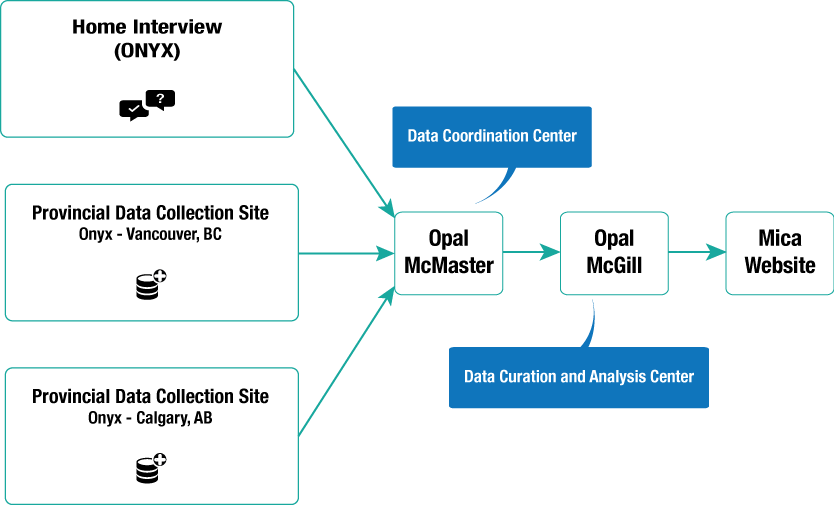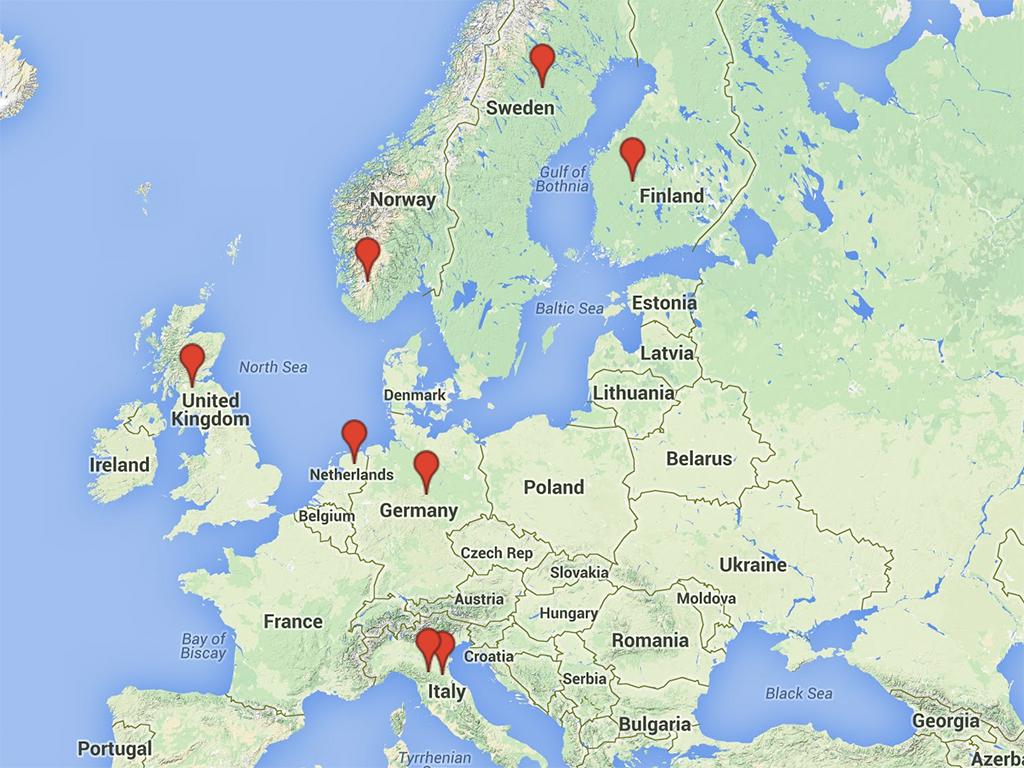User Stories
The following user’s stories aim to illustrate different usage of OBiBa software applications in large-scale epidemiological projects.
 The Canadian Partnerships for Tomorrow Project
The Canadian Partnerships for Tomorrow Project
The Canadian Partnership for Tomorrow project (CPT) is a long-term research initiative on cancer. CPT consists of five large Canadian prospective studies that are set to recruit 300,000 participants nationwide between 2009 and 2012.
The Onyx software application was initially created to assist in collecting baseline data for the CPT project. Developed and configured by a team of 10 OBiBa developers, Onyx was deployed in dozens of assessment centers across Canada. Using Onyx, participants were invited to sign an electronic consent form, answer multiple questionnaires and have taken physical measurements from several medical instruments. Barcoded biological samples were also tracked using Onyx.
In 2014, the collaboration with CPT entered in a new phase, namely with Maelstrom Research whose mandate is to harmonize data collected by the five CPT cohorts and build the CPT national data repository using the Opal and Mica software.
 The Canadian Longitudinal Study on Aging
The Canadian Longitudinal Study on Aging
The Canadian Longitudinal Study on aging (CLSA) (CLSA) project is good example of a productive collaboration between a large-scale study and OBiBa. The CLSA aims to follow approximately 50,000 men and women for at least 20 years and collect information on the changing biological, medical, psychological, social, lifestyle and economic aspects of people’s lives.
CLSA and OBiBa have been working closely together to develop new required functionality in Onyx and Opal to support CLSA protocols and data management procedures. This includes a new graphical user interface for editing questionnaires, integration of new imaging medical devices, support for videos and sound recording in cognitive tests and many more.
Onyx is currently deployed in 10 data collection centers across Canada and used as well by nurses with laptops for participant’s home interviews.
Data collected by Onyx is daily imported to an Opal central data repository hosted at the McMaster University in Hamilton. This data is then incrementally exported to the Opal’s CLSA analysis center hosted at the McGill University in Montreal for data curation and analysis. As of September 1st, 2014, more than 4.5 terabytes of data is stored in CLSA’s Opal databases.
Finally, the CLSA’s data portal is powered by the OBiBa’s Mica software.

 Data harmonization and federation in BioSHaRE
Data harmonization and federation in BioSHaRE
This story is an impressive example of use of the OBIBA software to create a federated database enabling advanced analysis without divulging any individual-level data.
BioSHaRE is a European project which aims to standardize and harmonize data from some of the largest biobanks in Europe. More than 160 selected data elements from 13 European biobanks have been harmonized by Maelstrom Research and corresponding harmonized datasets were derived and stored on Opal software instances.
The 13 resulting databases were then securely federated through the Mica-based BioSHARE website and the DataSHIELD R client (rstudio.bioshare.eu) to create a distributed dataset on more than 650,000 European subjects. Authorised researchers can now securely run distributed queries and statistical analyses on the harmonized data hosted on geographically-dispersed Opal servers. Queries from Mica allows remote retrieval of data summaries and descriptive statistics such as frequencies/counts, minimums, maximums, means, standard deviations, as well as contingency tables for each participating biobank in real time whereas DataSHIELD allows more advanced types of real time analyses such as generalized linear model fitting. In both cases, no individual-level data is ever transferred or disclosed to the researchers protecting this way subjects’ privacy.
More details can be read in this publication .
